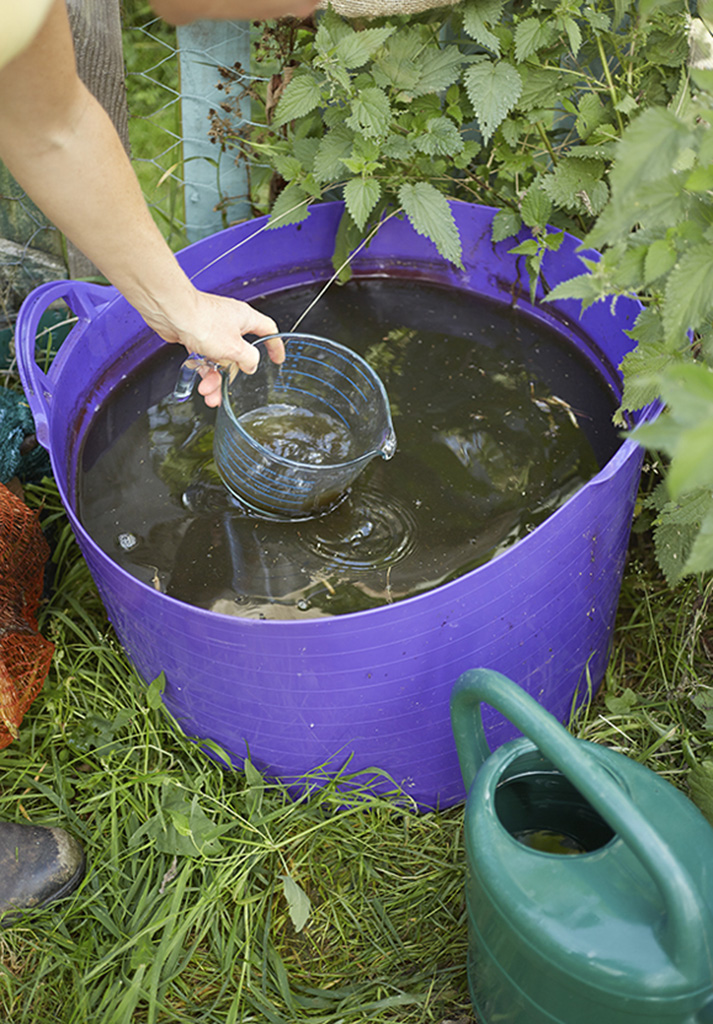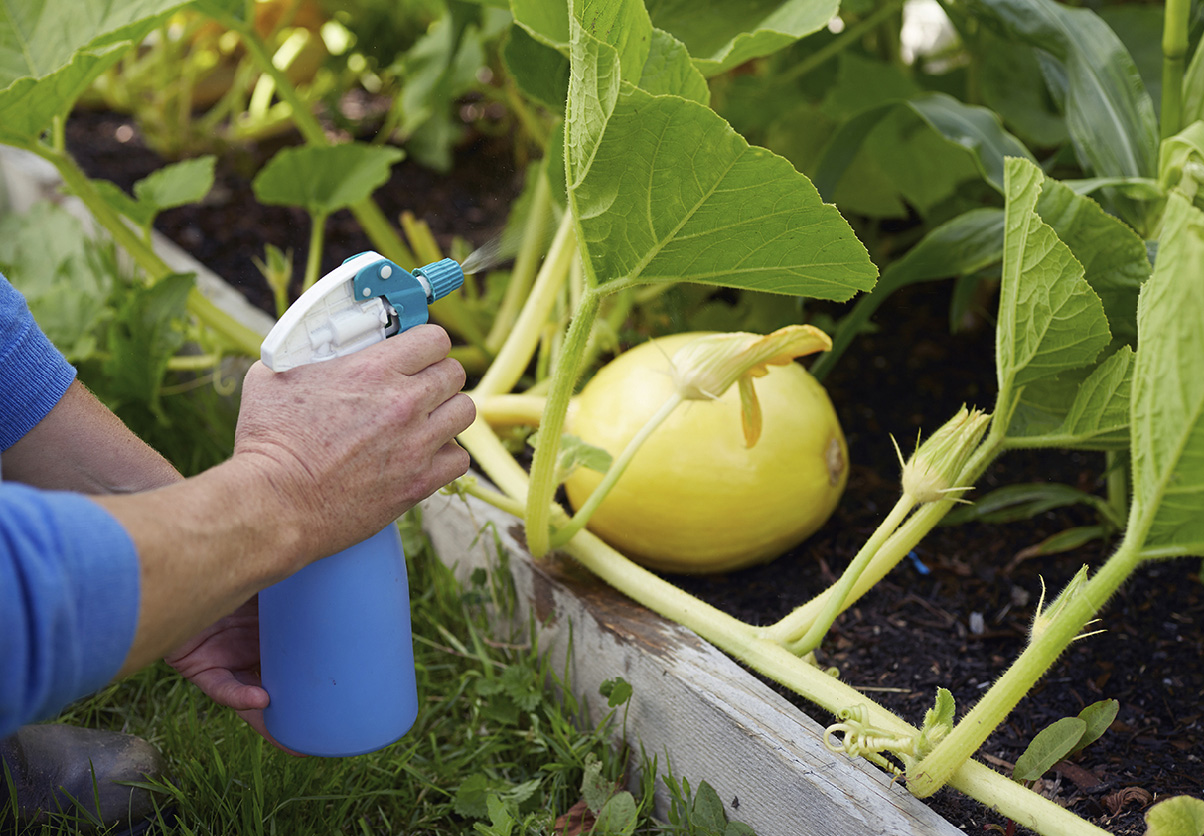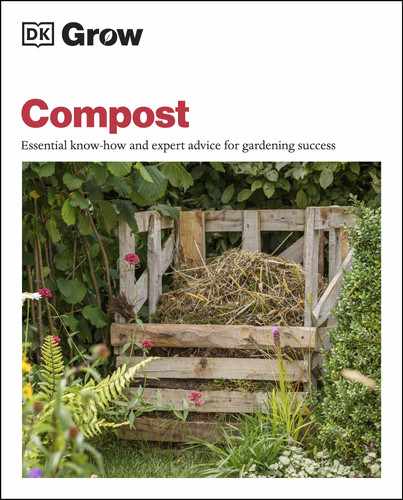Making fertilizer teas
Whichever method you choose to create your compost, you can transform it into a balanced liquid fertilizer that will promote healthy plant growth. Studies show that the microbes in fertilizer made from compost, known as “tea,” inhibit the growth of plant pathogens when they are sprayed on the leaves and help to bolster plants’ immunity to disease when applied to the soil. If your compost is not ready to use, try comfrey or nettles from the garden instead, which both make effective tea fertilizers. These natural plant foods can replace chemical-based products that damage the environment.
brewing tea from homemade compost
The nutrients in compost leach out when it is left to stew in water for a few days, creating a mild but effective plant fertilizer. To make the tea, you will need finished compost that looks dark brown, smells sweet like woodland soil, and has a crumbly texture (although a few half-composted twiggy bits will not cause a problem). In a cool or high-fiber heap, expect to wait a year or more for the finished product; a hot heap will produce it much sooner.
Fill a bucket one-third full with compost and top it up with water from a warain barrel. If you do not have one, you can use chlorinated tap water if you leave it in a separate container for a day or two to allow the chlorine to dissipate. Stir and leave the mixture to steep for three to four days, stirring occasionally. Strain the solution through muslin or an old cotton or linen shirt into a clean bucket and return any lumps to the compost bin. Dilute the remaining liquid with ten parts rainwater to one part tea, and use it to spray on your plant leaves or to drench the soil over the root zones, where it will provide nutrients to boost plants’ growth. A drop of vegetable oil will help the tea to stick to the leaves when you are using it as a foliar drench.
TOP TIP Use a spray bottle designed to mist house plants to apply compost tea as a foliar (leaf) feed. Store any excess tea in a cool, dark place away from children and pets.

Let the compost and water stew for a few days before straining it.

The microbes in compost teas protect plants against diseases when sprayed on the leaves.
Making comfrey and nettle teas
Both comfrey (Symphytum officinale) and nettles make excellent natural fertilizer teas: comfrey is rich in potassium (potash), while nettles are high in nitrogen. Use comfrey tea on fruit crops and potted flowers, applying it to the soil every two weeks when fruits form or blooms are in bud. Use nettle tea once every three weeks on leafy crops. Apply either tea as a foliar spray once or twice during the growing season on mature leaves.
To make these plant teas, use 2lb (1kg) nettles to 2 gallons (10 liters) of water, or 2lb (1kg) comfrey leaves to 3 gallons (15 liters) of water.
Making Compost | MAKING FERTILIZER TEAS

1 Collect leaves and nonflowering stems if you are also growing the plants for pollinators, or harvest after flowering.
Making Compost | MAKING FERTILIZER TEAS

2 Chop the leaves and stems and pack them into a bucket or other container with a lid. Weigh them down with a brick. Add water (see note for compost tea, opposite) and cover. Let the comfrey ferment for about six weeks and nettles for three or four weeks.
Making Compost | MAKING FERTILIZER TEAS

3 Strain the liquid into a labeled bottle with a cap—it is quite smelly—and store in a cool place away from children and pets. Dilute 1 part tea to 10 parts rainwater before applying.

Comfrey tea is rich in potash (potassium), the plant nutrient that promotes the formation of fruits such as pumpkins and squashes.
